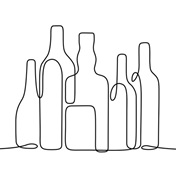The WHO's 61st assembly will debate "strategies to reduce the harmful use of alcohol" and a key official said there was a firm commitment among members to achieve concrete results. "The forces behind this are now well marshalled... the push to WHO to actually move towards a draft strategy is very strong here," said Bill Kean, executive director of the office of the Director General, Margaret Chan.
"We've heard from several large developing countries of their interest in this... I think the debate will be very wide-ranging but I don't think this will be watered down, I hope not," he told journalists.
Alcohol a major problem in South Africa
South Africa is one of the counties where alcohol abuse and dependence is a major problem. A report published by the Alcohol and Drug Abuse Research Group of the Medical Research Council (MRC) showed that in a 2003 study, of 5 886 people treated at 52 specialist substance abuse treatment centres in Cape Town, Durban, Gauteng, Mpumalanga, and PE in the first half of 2003, 52% reported having alcohol as their primary drug of abuse, with a further 13% having alcohol as a secondary drug of abuse.
Other shocking local statistics from MRC studies show:
The national figure was 46%. Levels of alcohol were particularly high for transport-related deaths and homicides, with 63% of transport-related deaths and 69% of homicides in PE, for example, having levels above the legal limit for driving (0.05g/100ml).
Levels of alcohol were particularly high for transport- and violence-related injuries with, for example, 73% of patients with violence-related injuries in PE and 46% of patients with transport-related injuries in Cape Town having levels above the legal limit for driving (0.05g/100ml).
Drinks industry and awareness charities at odds
Alcohol awareness charities voiced doubts however that the assembly would yield much in the way of progress given the formidable clout of the drinks lobby - in contrast to the strict anti-tobacco convention the WHO drew up in 2005.
"We're not particularly hopeful," said Frank Soodeen, head of public affairs for the UK-based group Alcohol Concern. "There's no doubting the tremendous lobbying power of the drinks industry," he told AFP.
The drinks industry is at pains to stress it promotes healthy and moderate consumption of alcohol. No causal link has been shown between beverage alcohol advertising and increased overall alcohol consumption. Advertising merely increases consumption for the advertised brands versus other brands," said the GAP industry group whose members include Heineken, Diageo, InBev and Pernod-Ricard.
The WHO estimates that alcohol is responsible for about four percent of deaths each year.
Alcohol advertising under spotlight
Alcohol Concern's Soodeen urged the WHO to develop an alcohol policy framework that takes note of existing "best practice" in various countries. In particular he cited France with its "robust" restrictions on alcohol advertising.
In February, a French court ruled it illegal to advertise alcoholic drinks on the Internet, giving the Dutch brewer Heineken three weeks to take down beer ads from its French website.
Under the law, alcohol adverts are only allowed in the print media, on the radio and in sales outlets. Heineken had argued that the telephone - and by extension the Internet - was not covered by the ban.
Governments worldwide are growing increasingly concerned about so-called "binge-drinking," particularly among young people.
In Australia, the new Labor government of Prime Minister Kevin Rudd is considering placing graphic warning labels on alcoholic drinks in a bid to "scare the living daylights" out of boozing teenagers.
Archbishop Tutu will address assembly
Other topics to be discussed at the WHO assembly include the threat of an avian flu pandemic, non-communicable diseases such as obesity and diabetes, and the thorny issue of intellectual property rights and the pharmaceuticals industry.
The week-long assembly will be addressed by two guest speakers: South African archbishop and activist Desmond Tutu, and Princess Muna of Jordan, both of whom are actively involved in promoting public health in their countries. The assembly runs from May 19 - 24 at the United Nations headquarters in Geneva. (Sapa, Medical Research Council, May 2008)
Read more:
SA rehabs to be closely monitored
Alcohol's effect on the brain




 Publications
Publications
 Partners
Partners














